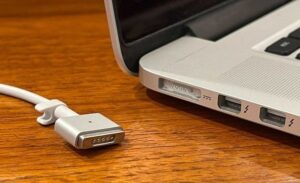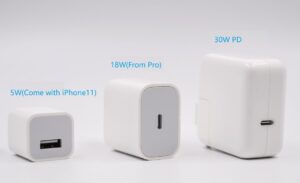Can a car battery charge itself? This is a question that often arises when we face a dead battery and wonder if there is a way to avoid the hassle of jump-starting or replacing it. The good news is that in certain cases, a car battery can indeed charge itself, but it’s important to understand the factors at play. In this article, we will explore the concept of a car battery self-charging and provide insights into how it can happen. So if you’ve ever wondered whether your car battery has the ability to recharge on its own, keep reading to find out the answer.
Will a Car Battery Charge Itself?
If you’ve ever experienced a dead car battery, you may have wondered if it’s possible for the battery to charge itself. After all, wouldn’t it be convenient if you could just wait a while and have your battery magically regain its power? In this article, we will delve into the question of whether a car battery can charge itself and explore the factors that affect its charging capabilities.
Understanding the Basics of Car Batteries
Before we dive into the self-charging aspect, let’s first understand how car batteries work. A car battery is a rechargeable battery that provides electrical energy to start the engine and power the vehicle’s electrical components. It is typically a lead-acid battery that consists of a series of cells, each capable of storing and delivering electrical energy.
When the engine is off, the battery is responsible for supplying power to the various systems in your car, such as lights, radio, and the onboard computer. When you start the engine, the alternator takes over the role of generating electricity and also recharges the battery.
The Role of the Alternator
The alternator is a crucial component in the car’s charging system. Its primary function is to convert mechanical energy from the engine into electrical energy, which is then used to power the vehicle’s electrical systems and recharge the battery.
When the engine is running, the alternator produces electricity and directs it to the battery, replenishing the energy that was used to start the engine. The alternator also ensures that the battery remains charged while supplying power to the car’s electrical components.
What Happens When the Car Battery Runs Low?
While the alternator is responsible for charging the car battery, it is worth noting that there are situations where the battery’s charge may run low. Several factors can contribute to a depleted battery, such as leaving the lights on overnight or using power-intensive accessories without the engine running.
When the battery is significantly discharged, it may not have enough power to start the engine. In such cases, you might need to jump-start the car using jumper cables or a portable jump starter. Jump-starting provides a temporary boost to the battery, allowing you to start the engine, but it does not solve the underlying issue of a low charge.
Can a Car Battery Recharge Itself?
Now, let’s address the main question: can a car battery charge itself? The short answer is no. In normal circumstances, a car battery cannot charge itself without the help of an external power source. The alternator is responsible for replenishing the battery’s charge while the engine is running.
However, there are cases where a battery may regain some charge through a process called surface charge. Surface charge refers to a superficial charge that appears on the battery’s plates immediately after the alternator has been running. This charge, although temporary, can make the battery seem as if it’s charging on its own when, in reality, it’s only a surface charge.
Exploring Surface Charge
Surface charge can occur when the battery is recently charged, and the alternator is generating electricity. During this time, some of the battery plates become charged, while others remain discharged or in a low state of charge. As a result, the battery’s voltage temporarily increases, giving the impression that it is charging itself.
However, this surface charge dissipates quickly once the alternator stops running, and the battery voltage returns to its actual state. So, while a car battery may appear to charge itself, it’s merely a temporary phenomenon caused by the residual charge on the surface of the plates.
Factors Affecting Battery Charging
To better understand why a car battery cannot truly charge itself, let’s explore the factors that affect its charging capabilities.
Battery Condition
The condition of the battery plays a significant role in its charging efficiency. Over time, car batteries can deteriorate due to factors like sulfation and corrosion, which reduce their capacity to hold and deliver electrical energy. A weakened or damaged battery may inhibit the charging process, even with an operational alternator.
Alternator Output
The output of the alternator determines the rate at which it charges the battery. If the alternator is faulty or its output is insufficient, it may not be able to recharge the battery fully. In such cases, the battery may not regain a full charge, leading to a weakened capacity and a higher risk of future discharge.
Driving Conditions
The driving conditions can also impact the battery’s charging. Short trips or frequent stop-and-go driving may not allow the alternator enough time to fully recharge the battery. Conversely, long highway drives often provide better opportunities for the battery to charge, thanks to sustained high RPMs that enhance the alternator’s output.
Maintaining a Healthy Car Battery
While a car battery cannot charge itself, there are steps you can take to maintain its health and optimize charging efficiency.
Regular Maintenance
Performing regular battery maintenance is crucial to ensure its longevity and optimal performance. Here are some maintenance tips to consider:
- Inspect the battery regularly for signs of corrosion or damage.
- Clean the battery terminals to remove any build-up of dirt or corrosion.
- Check the battery’s water level if it is a non-sealed lead-acid battery (flooded battery).
- Ensure the battery is securely fastened in its tray to prevent vibration damage.
Driving Habits
Adjusting your driving habits can also contribute to a healthier battery. Consider the following tips:
- Avoid frequent short trips, if possible.
- Limit the use of power-intensive accessories when the engine is not running.
- If you anticipate long periods of inactivity, use a battery maintainer or trickle charger to keep the battery charged.
To Charge or Not to Charge
In conclusion, while a car battery cannot charge itself, the alternator serves as the primary source of charging during the operation of the engine. A battery that appears to charge itself is likely experiencing surface charge, which is temporary and does not contribute to long-term charging.
Understanding the factors that affect battery charging, such as battery condition, alternator output, and driving conditions, can help you take appropriate measures to maintain a healthy battery. Regular maintenance and mindful driving habits can go a long way in optimizing the charging process and ensuring the longevity of your car battery.
Frequently Asked Questions
Can a car battery charge itself?
No, a car battery cannot charge itself. Car batteries rely on the alternator, which is powered by the engine, to charge them. When the engine is running, the alternator generates electricity that is used to recharge the battery and power the car’s electrical systems.
What role does the alternator play in charging the car battery?
The alternator is responsible for converting mechanical energy from the engine into electrical energy. It charges the car battery while simultaneously powering the electrical components of the vehicle. Without the alternator, the battery would eventually drain and the car would not be able to start or function properly.
How does the alternator recharge the car battery?
The alternator contains a component called a voltage regulator that controls the amount of current flowing to the battery. As the engine runs, the alternator spins a pulley which drives a belt connected to the voltage regulator. The voltage regulator ensures that the battery receives a steady charge, preventing it from overcharging or undercharging.
What happens if the alternator malfunctions?
If the alternator malfunctions, the car battery will not be able to receive a charge, resulting in a depleted battery. This can lead to a variety of issues such as difficulty starting the car, dimming headlights, and loss of power to electrical components. It is important to have the alternator checked and repaired if necessary to avoid further battery problems.
Can a car battery be charged without the engine running?
While it is possible to charge a car battery using an external charger or a jump-start from another vehicle, it is not recommended to attempt charging a car battery without the engine running. The alternator is specifically designed to provide the appropriate voltage and amperage to effectively charge the battery while the engine is running.
Final Thoughts
Car batteries play a crucial role in powering our vehicles, but they can sometimes fail to hold a charge. One might wonder if a car battery can charge itself. Unfortunately, car batteries do not have the capability to charge themselves. They rely on the alternator, which converts mechanical energy into electrical energy, to recharge them while the engine is running. It is essential to ensure the alternator is functioning properly and the battery connections are clean and secure to maintain a healthy battery. Regular maintenance and driving your vehicle frequently can help prevent a discharged battery. So, in answer to the question, “Will a car battery charge itself?” the simple answer is no.


